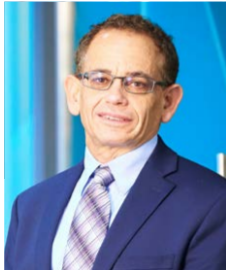Call for PapersInternet of Things (IoT) enables close interactions between humans and machines. As the boundary between machines and humans gets blurry, more focus is needed in order to provide security and privacy solutions that could be used by users and IoT devices in a holistic way. IoT technologies, if they are not designed and applied in a secure and safe way, can be vulnerable to many types of attacks, which can cause serious problems in the physical world. Since IoT devices are not only monitoring, e.g., through sensors, but also controlling physical objects, e.g., through actuators, the impact of security attacks can be devastating including serious safety impacts, as in the case of connected vehicles and smart healthcare. Thus, the IoT brings new challenges regarding security, privacy and mainly “trust” in case of smart cities. Having a large number of devices installed in homes, offices, busses, on the street, etc., monitoring the everyday activities of citizens raises issues regarding the privacy of the citizens and the access to sensitive information. Moreover, Trust in the IoT world is also a challenging issue that only recently has attracted the attention of the research community. There are many open questions regarding “how trustworthy are the IoT systems in smart cities?”, “why should I trust a smart city application?”, “are the devices providing reliable information?”, “when I need to get some information from a smart city application, and how can I be ensured that this information is timely and accurate?”, “will my private information be openly distributed to anyone without my consent?”. It can be easily seen that citizens may be reluctant to use smart city systems because they do not trust them. Thus, IoT-based systems have to prove their trustworthiness to the citizens and provide the citizens clear and visible indicators of trust. In addition, which design approaches should be proposed and adopted to enhance the secure interoperability and trust among the many different systems and services, which compose a smart city?
Securing IoT devices and communication is nevertheless challenging due to the tangled involvement of human factors and interoperability issues. Together they create a unique and challenging problem space. In this workshop, we intend to discuss the security issues in IoT, particularly taking into account user centric solutions, involving usability and interoperability.
This workshop aims to encourage innovative cross-domain studies that address the challenges of secure IoT networks and applications in the presence of non-security-savvy users and devices with diverse capacities. We encourage papers that identify, model, or address the complex interplay between security, privacy, usability, and interoperability in the context of Internet of Things.
The technical topics of interest include, but are not limited to:
This workshop is supported by EU projects SMARTIE, RERUM, ARMOUR and the IEEE CSIM SIG on “Optimization of Networking Technologies for the Internet of Things”
|
|
Organizing CommitteeWorkshop General Chairs:
Workshop cochairs:
Publicity co-chair:
Publication co-chair:
|
Technical Program Committee
|
Paper Submission GuidelinesAll final submissions should be written in English with a maximum paper length of six (6) printed pages. See conference web page for instructions here>>
|
Important Dates
|
Workshop Keynotes

Dr. David Kravitz
Vice President – Crypto Systems Research, DARKMATTER
Dr. David Kravitz is Vice President of Crypto Systems Research at DarkMatter. He is involved in the provision of valuable research insights on a variety of cyber security topics including Public Key Infrastructure and developments in blockchain. He also has experience in authentication, authorisation and accounting (AAA) services.
Dr. Kravitz’s 35-year experience spans an extensive range of technological and cyber security related domains including cryptography, algorithms, protocols and systems design and evaluation. Prior to joining DarkMatter, Dr. Kravitz was a Research Staff Member with IBM Research where he was an architect of identity management, audit, and transaction privacy systems. He also oversaw the development of cryptographic constructs for next-generation ultra-high- definition content protection.
Dr. Kravitz began his career at the National Security Agency (NSA), where he “combined his exceptional skills in protocol and algorithm design with his evaluation capabilities to profoundly enhance the security posture of Communications,” as stated in the Certificate of Achievement he was awarded by the Director of the NSA.
Subsequently, Dr. Kravitz held a position as Senior Member of Technical Staff, Sandia National Laboratories, providing information surety of nuclear command & control and electronic commerce. He also held the position of Fellow of technical Staff at Motorola, and as Principal Member of Technical Staff at BlackBerry.
Dr. Kravitz was the principal architect of blockchain Fabric Membership Services for the open-source Linux Foundation Hyperledger Project, and acts as Advisory Board Member to Federal Guardian LLC, a cyber security consolidation platform.
He was Chief Scientist at Wave Systems Corp., at Sparta Inc., and at Digital Video Express, where he was responsible for multiple designs in the areas of security system infrastructure and cryptography suitable for smart cards, content metering, compliant playback, security token keying, and watermark-based conditional access. As Vice President at Bankers Trust Electronic Commerce/CertCo, Dr. Kravitz designed a comprehensive internet payments and digital goods distribution platform.
He holds a PhD in Electrical Engineering Systems from University of Southern California, and a Masters in Mathematical Sciences from Johns Hopkins University. During his 11-year tenure at NSA, Dr. Kravitz invented the Digital Signature Algorithm (DSA), which forms one of the dozens of issued and pending patents in his name.





